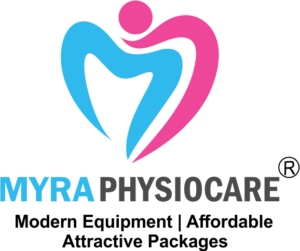Muscle Sprain
A muscle sprain is a common injury that occurs when a muscle or its surrounding tissue is stretched or torn. It can happen as a result of sudden or overuse of a muscle, or due to trauma such as a fall or impact. Symptoms of a muscle sprain include pain, swelling, stiffness, and difficulty moving the affected area.
If you suspect you have a muscle sprain, it's important to take care of the injury to prevent further damage and aid in the healing process. Here are some steps you can take:
- Rest the affected muscle: Avoid using the muscle as much as possible to allow it to heal. Depending on the severity of the sprain, you may need to immobilize the area with a brace or wrap.
- Ice the area: Applying ice to the injured area can help reduce swelling and inflammation. Use a cold pack or a bag of ice wrapped in a towel and apply it to the affected area for 20 minutes at a time, several times a day.
- Compress the area: Wrap the affected area with an elastic bandage or compression sleeve to help reduce swelling and provide support.
- Elevate the affected limb: If the sprain is in an arm or leg, elevate the limb above heart level to help reduce swelling.
- Take pain relievers: Over-the-counter pain relievers such as acetaminophen or ibuprofen can help relieve pain and reduce inflammation.
- Follow a rehabilitation program: Once the pain and swelling have subsided, you may need to do exercises to help strengthen the affected muscle and restore range of motion. A physical therapist can help develop a rehabilitation program tailored to your needs.A
If your symptoms are severe or do not improve after a few days, it’s important to seek medical attention to rule out a more serious injury such as a muscle tear or fracture.
In addition to the above steps, it's also important to take preventative measures to avoid muscle sprains in the future. This may include:
- Stretching before and after exercise: This can help warm up the muscles and increase flexibility, reducing the risk of injury.
- Using proper technique: Whether you’re lifting weights or participating in a sport, it’s important to use proper form and technique to avoid putting unnecessary strain on your muscles.
- Gradually increasing intensity: If you’re starting a new exercise program or increasing the intensity of your workouts, do so gradually to give your muscles time to adjust.
- Wearing proper footwear: Make sure you’re wearing shoes that fit well and provide adequate support for the activity you’re doing.
- Staying hydrated: Dehydration can increase the risk of muscle cramps and sprains, so make sure you’re drinking plenty of water throughout the day.
